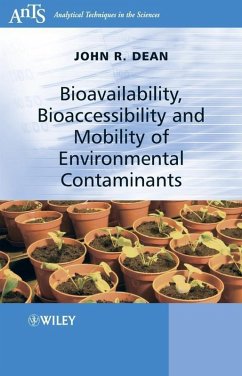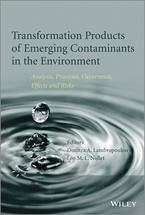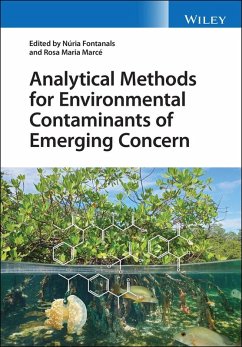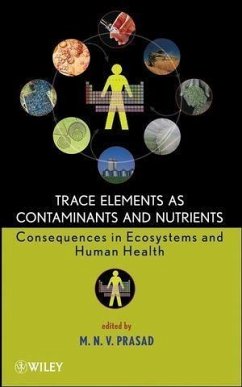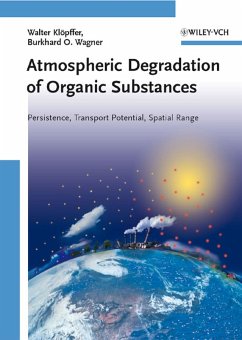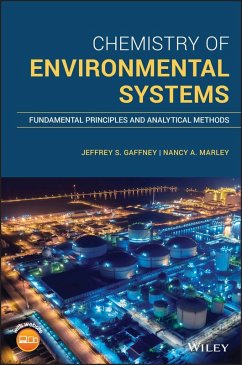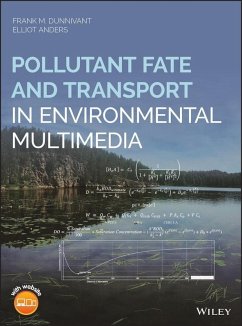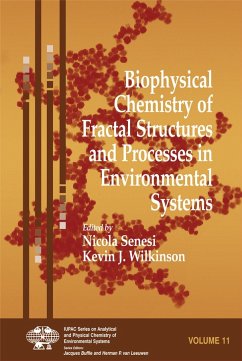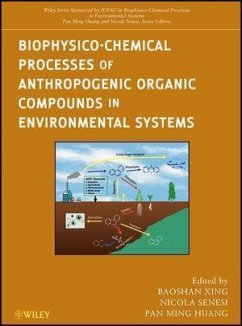
Partition and Adsorption of Organic Contaminants in Environmental Systems (eBook, PDF)
Versandkostenfrei!
Sofort per Download lieferbar
168,99 €
inkl. MwSt.
Weitere Ausgaben:

PAYBACK Punkte
0 °P sammeln!
Given the presence of a wide variety of contaminants in the environment, it is important to understand what drives a contaminant from one medium to another, as well as the manner and extent to which a contaminant associates with the different media or phases within a local environmental system. Partition and Adsorption of Organic Contaminants in Environmental Systems forms a comprehensive resource on the behavioral characteristics of contaminants so that appropriate strategies can be adopted to either prevent or minimize their adverse impacts on human welfare and natural resources.Cary Chiou's...
Given the presence of a wide variety of contaminants in the environment, it is important to understand what drives a contaminant from one medium to another, as well as the manner and extent to which a contaminant associates with the different media or phases within a local environmental system. Partition and Adsorption of Organic Contaminants in Environmental Systems forms a comprehensive resource on the behavioral characteristics of contaminants so that appropriate strategies can be adopted to either prevent or minimize their adverse impacts on human welfare and natural resources.
Cary Chiou's far-reaching text depicts the processes by which nonionic organic contaminants are sorbed to natural biotic and abiotic substances. This book focuses on physical principles and system parameters that affect the contaminant uptake by soil from water, air, and other media; by fish from water; and by plants from soil and water. As contaminant uptake by natural organic substances is often predominantly a partition interaction, the partition characteristics in several solvent-water model mixtures are treated in detail to elucidate the relevant physicochemical parameters. The account of contaminant sorption to soils, fish, and plants is strengthened by companion chapters on:
No other single source in the field delivers as compelling a combination of background understanding and "state-of-the-science" comprehension of current issues. Ideally suited for a graduate-level environmental course, Partition and Adsorption of Organic Contaminants in Environmental Systems also serves as a technical guide to current and future research in the field.
Cary Chiou's far-reaching text depicts the processes by which nonionic organic contaminants are sorbed to natural biotic and abiotic substances. This book focuses on physical principles and system parameters that affect the contaminant uptake by soil from water, air, and other media; by fish from water; and by plants from soil and water. As contaminant uptake by natural organic substances is often predominantly a partition interaction, the partition characteristics in several solvent-water model mixtures are treated in detail to elucidate the relevant physicochemical parameters. The account of contaminant sorption to soils, fish, and plants is strengthened by companion chapters on:
- Fundamentals of solution theory
- Interphase partition equations
- Fundamentals of adsorption theory
- Vapor adsorption on mineral and carbonaceous solids
No other single source in the field delivers as compelling a combination of background understanding and "state-of-the-science" comprehension of current issues. Ideally suited for a graduate-level environmental course, Partition and Adsorption of Organic Contaminants in Environmental Systems also serves as a technical guide to current and future research in the field.
Dieser Download kann aus rechtlichen Gründen nur mit Rechnungsadresse in D ausgeliefert werden.



